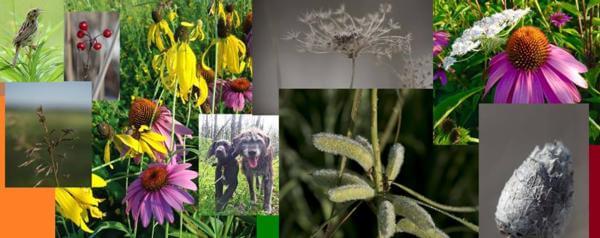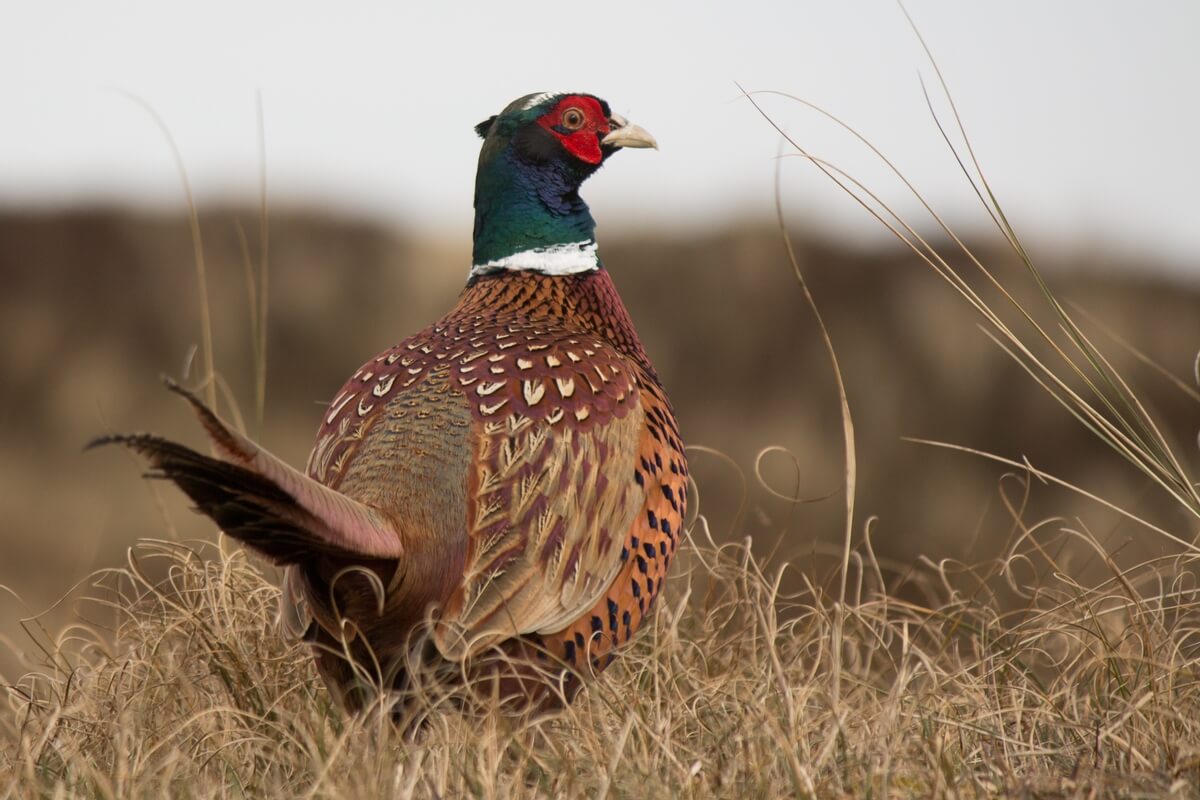About Pheasants Forever Washtenaw County 151
A Local Michigan Chapter
MAILING ADDRESS: WCPF, PO Box 614 - Saline, MI 48176 We are Washtenaw County Pheasants Forever, a nonprofit conservation organization dedicated to the protection and enhancement of pheasants and other upland bird populations in North America.
Pheasants Forever is the only national organization with a model of chapters keeping 100% of the funds they raise. While belonging to a larger national organization that has a voice on federal and state conservation policies, chapters are tasked with finding projects for their funds. Michigan takes full advantage of this model using funds raised for projects locally as well as other areas in the state of Michigan.

Our Chapter Mission
Protect, restore, and enhance wildlife habitat by establishing and maintaining local projects.
- Create, improve, and preserve upland bird habitat
- Foster youth hunting and outdoor activities.
- Develop, distribute and foster conservation education.
- Introduce and advance prudent management of conservation policies.
Pheasants Forever is a non-profit organization dedicated to the protection and enhancement of pheasant and other wildlife populations in North America through habitat improvement, land management, public awareness, and education.

Our Washtenaw County Pheasants Forever History
Back in the winter of 1986 a news article was published in the Ann Arbor News by a concerned sportsman. He was hoping to find fellow sportsmen with an interest in doing something for the pheasants. Several others with the same concern read the article and decided to meet with Rick Young, who at the time was the regional biologist with Pheasants Forever.
The organizational meeting was held in May of 1987 at the Washtenaw Sportsman Club located on Ellis Road near Ypsilanti. Rick Young went over the process of starting a chapter and away we went. Some of the original members were Hugh Montgomery, Lany Beckington, Steve Cummings, Chester Javis, Bob Gee, Loren Shook, Dave McPike, Roy Fehrle, Bob Ganzhorn, Larry Paquin, Dan Hornback, Keith Worrell and Steve Schneider. First elected officers were: Steve Schneider, President; Hugh Montgomery, VP; Chester Jarvis, Secretary; and Bob Gee, Treasurer.
One of the requirements was to hold a fundraising banquet each year to earn dollars for the local chapter. We scheduled the first banquet for September 16, 1987. Of course the first banquet was the most memorable. We had 150 attendees that night and raised about $8,000. What a great memory and what support from local sportsmen and sportswomen.
But, we were truly infants in the habitat world. One of the first projects we undertook was to put out small corn bins in areas where pheasants were wintering in hopes of helping them through the snow covered months. The next spring we started planting food plots with the help, equipment and know how of Lany Beckington and Loren Shook. They became living legends for all the hard work and late nights they put into the projects. Many a night they would be out there until midnight: plowing, disking or planting.
Banquets came and went. We got pretty good at raising money and soon we were raising $20,000 to $25,000 per year. Our donors and banquet attendees were our greatest assets as they were instrumental in our fundraising. The more we made - the more we spent. It was on good things like food-plot seed - which we gave away to local landowners to plant. We also purchased several pieces of equipment over the years for planting food plots and drilling native prairie grass.
After several years, a new member came into the group. He worked at the U of M as a grant writer. After a few meetings and getting to know the group, he started talking about something strange...prairie grass and switch grass. At the time we thought Don Wieland was a little off his rocker. What would a pheasant want or need switch grass for? Little did we know but Don was about ten years ahead of the rest of us. Soon after Don was done educating us, we discovered that native prairie grass stands were one of the best habitats for pheasants that there would ever be.
With Don leading the way, we took off and got into the prairie establishment business. We even bought an eight foot wide native grass drill especially made for planting those fluffy grasses and flower seeds. Yes flowers! Who would have thought a bunch of guys would be planting flowers (forbs for the macho guys) and finding out that these forbs attracted bugs that pheasant chicks rely on for food during the first several weeks of their life.
As our Chapter matured, it became apparent that we would not be able to increase pheasant populations back to the levels they were in the 50's and 60's. What we did discover was that in addition to planting food plots each year and establishing native prairie grass stands, we needed to educate youth.
With this in mind, and with the help of the National Pheasants Forever office and the Michigan State Council of Pheasants Forever, we became involved with the Leopold Education Project (LEP). This project is designed to teach teachers and supply them with guidelines - so they can teach land-ethic based courses in the schools. The LEP curriculum was correlated with the MEAP testing system which is in use in Michigan schools. This allows teachers to have new content to teach land ethics and still fulfill teaching goals and requirements in areas like math, science and English. Over the years we have sponsored over 50 teachers for this education of our youth.
In addition to LEP education, we also began our annual mentor hunts in 2000. These hunts sponsored 30-40 youth on a local Washtenaw County farm each September. Each youth hunter and parent is assigned to a group of four to five hunters. They are then guided through fields where a dog handler assists them in finding a bird and making a safe shot. Getting the bird is all up to them and their hand / eye coordination. Some are successful and some are not; but all have a great time and learn how to hunt safely.
Many things have changed since our first meeting in 1987, but the goal is still the same...Establish Habitat for Pheasants!

Our Local Habitat Projects
We actively partner with other chapters and Michigan organization of natural resources on many habitat projects.
- Habitat field days are conducted when opportunities arise.
- We involve young people through activities such as youth hunts and habitat projects.
- Habitat projects and efforts to restore and preserve public lands.
- Contribute to funding purchasing and restoration of local land throughout our community.
Our Fundraising
- Our annual fundraising banquet is held in late February each year.

Who Is Pheasants Forever?
A national organization dedicated to the preservation and restoration of habitat for upland game and wildlife throughout the nation.
- Over 145,000 grassroots members and volunteers who have developed more than 10 million acres of pheasant and other wildlife habitat since inception.
- 600 chapters completing over 35,000 projects annually.

What Can You Do To Help?
Please explore our website and discover more about the Washtenaw County Pheasants Forever Chapter. You'll find detailed information on all our activities and upcoming events. Let us know what you think; we appreciate your feedback. If you are interested in becoming a member, please contact us. We welcome people interested in the Pheasants Forever mission to attend our monthly meetings, listed on our events page.
- Become a Pheasants Forever member or sponsor
- Volunteer your time or resources to our chapter


